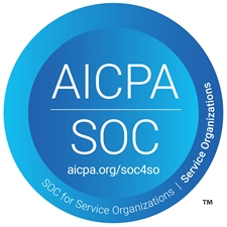
Law Firms as an Electronic Filing Service Provider
Law Firms as an Electronic Filing Service Provider
We are pleased to share the following article by Mr. Dallas Powell, President of Tybera, Inc., an E-filing services company. In the article he shares their experience with law firms and government agencies connecting directly to the court’s EFM (E-Filing Manager) services.
—-
One of the critical concepts in the Oasis-Open LegalXML ECF standard is a Major Design Element ‘MDE’ that generates submissions for filers. The standard philosophy is that, due to the complexity of creating this MDE software, the industry in general believes that only specialty software companies will provide these services. This type of service is often referred to as an Electronic Filing Service Provider or EFSP. These specialty vendors that create the EFSP services must charge for this service to recover their investment. The most common behavior is for these vendors to provide a web interface where filers will register and use their services. The vendors often include additional features and services to compete with other EFSP vendors.
The EFSP business model works nicely if you only file a few documents per attorney per day. These filers often rely on their paralegal support to learn how to use the services. Unfortunately, this process of logging into a web interface and creating your submission is time consuming, especially for law firms that specialize. These specialty firms can be characterized as a firm where a single attorney is assigned to many cases. These firms include prosecuting attorney offices, law firms that work in debt collection, law firms that work on Landlord tenant cases, and other firms where the case load per attorney is high. It is not unusual for a prosecuting attorney to have a hundred active cases assigned to them. It is not unusual for an attorney representing debt collection agencies to have several thousand active cases assigned to them.
Fortunately, the ECF standard does not identify or limit what companies can develop the filer MDE software and become an EFSP provider. This allows law firms to become their own EFSP provider and eliminate the need for a third party vendor.
The Utah State Courts originally licensed the Tybera EFSP/EFM software, which would allow all filers in Utah to use the EFSP at no cost. The challenge with licensing the software carries the burden of ownership for not only the software, but also the filer training and phone support. Courts can outsource these services, which is an effective business model, but Utah eventually decided to modify their strategy to limit the use of the licensed EFSP to State Agencies, Public Defenders, and Prosecuting Attorneys. The Utah AOC was willing to support the software and these users, but required the private sector to register with an independent EFSP vendor that would support the software, the phone support, and other services for them.
Prior to the shift, Utah allowed the private sector law firms to use the licensed EFSP software and promoted debt collection firms to use the system. Law Firms that work in debt collection cases know that 90% of their cases will follow the same pattern to a default judgment. Utah felt that improving the processing by encouraging E-filing for debt collection cases alleviates some burden on the court. Due to the consistency of the cases, these firms often automate their entire process, including the generation and printing of the complaints, default judgments, and garnishments. Due to the large volume of documents they produced daily, using a runner to carry a stack of documents to the court was still cost effective. The cost per submission in this process was down to less than $0.25. Introducing E-filing for these types of firms had two negative impacts: 1) The shift from printing and delivery to uploading the electronic version of the documents to a web browser is manually time intensive and increased cost for these firms, and 2) after the shift to independent EFSP vendors, the firm was forced to pay for the EFSP services. Both conditions created a negative impact on these firms.
To mitigate the impact and help improve efficiencies Tybera has worked with several EFSP vendors and Law Firms in Utah to verify compliance as an EFSP. Several Law Firms that specialize in Debt Collection found it worth the investment to integrate an EFSP software component into their existing case management system. Now, instead of automatically printing, the CMS automatically calls the EFSP service embedded in their CMS, which then transmits the documents to the court. Finally, the E-filing is more cost effective than the paper process. Embedding the Filer MDE software components into the law firm’s CMS allows firms such as Johnson & Mark LLC (www.jmlaw.pro) to create a two-way communication directly with the courts. They rarely use a web interface. They initiate thousands of cases monthly directly from their CMS. This integration also automatically updates their CMS with court receipts, eNotifications, and documents filed by the defendants when such events occur. Now the efficiencies are greater than the paper process where they manually had to enter the court receipts and other documents.
This same automation process has been implemented with state agencies that file thousands of documents to the courts in Utah and Iowa. For example in Utah, Tybera has integrated an EFSP component into the Department of Workforce Services CMS for Workers Compensation Over Payments. Tybera has also integrated an EFSP component into Iowa Department of Human Services for Child Recovery Services. Both of these processes include a two-way communication between the Court’s CMS and the agency’s CMS. Tybera’s same process is being implemented with prosecuting attorney offices in both Utah and Kansas, creating a two-way communication between the agency’s CMS and the Court’s CMS.
The trend to integrate the Filer MDE software into the external CMS products will continue to grow over time. Tybera envisions the environment where every law firm CMS will automatically come with software that provides the two-way integration. This means the EFSP vendors will migrate their cloud services to become a Law Firm CMS and the current CMS vendors will migrate their software to include the same features. The challenge faced today is that the variation of data required by each court means a generic CMS cannot implement a single solution yet. The ECF standard has extensions because no two case management systems are the same. From Tybera’s experience, even two individual installations of the same CMS are often different. These differences are what slows down this universal integration of the EFSP components into every CMS.
Posted by James E. McMillan
https://courttechbulletin.blogspot.com/2016/10/law-firms-as-electronic-filing-service.html

